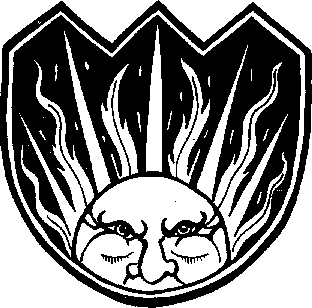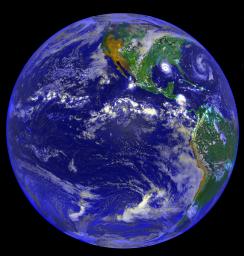Which planet may we expect to find "Transcendental" -- that is, under-aspected and
for that reason potent, fecund and central in importance -- in the life of a nation?
Perhaps not surprisingly -- given our other research into the lives of notable
personalities whose lives embodied a grave, even over-burdening sense of
responsibility towards the social collective and whose least-aspected planet was
Saturn -- Saturn is found here in a surprisingly high number of cases, particularly
where we have precisely recorded times (and even with some notable approximate
'birth'-times, such as for the arrival of Mohammed in Medina at sunset, marking the
Arabian horoscope which has been used for centuries; or for the more recent
"Sagittarius Rising" chart of the United States -- both of which are distinguished by
under-aspected Saturns).
Besides the frequent appearance of Saturn as a least-; second-least; or third
least-aspected planet, Jupiter -- the other planet indicating the social-collective and
its symbolism -- is also all too often involved, it seems, in the formation of nation
states. Why is this? If we conceive of the inner planets -- Sun, Moon and Mercury --
as indicating the fundamental personal level of the psyche; the interpersonal planets --
Venus and Mars -- as signifying the evolution of the personal fundament moving in an
ontological, telic manner into the interpersonal realm; and the final realm of psychic or
cosmic evolution -- the transpersonal or archetypal realm -- as signified by Pluto,
Neptune and Uranus; that leaves Jupiter and Saturn, the planets which stand
between the personal/interpersonal and the transpersonal: thus, the collective is
formed.
As the planets of expansion and constriction, of collective soul (Jupiter) on the one hand, and collective spirit (Saturn) on the other, Saturn and Jupiter are
perfectly placed here, at the birth of national states. The state, after all, has the
function of constricting as much as it does of expanding: and it does both with the
collective, primarily, in mind.
It is perhaps for this reason, or in parallel with it, that many American presidents have
had Saturn as a key Transcendental Planet: That is, their personality, their orientation
and interpersonal structure was primarily in accord, in tune with, the essential
placement of Saturn -- as a Tertiary Transcendental Planet -- in the chart of the
United States.
We also find Saturn in the various charts for Germany: For the 1871 chart,
Secondary Jupiter, Tertiary Saturn; and for the 1949 Bundesrepublik, Primary
Jupiter, Tertiary Saturn. For the relatively short-lived 1918 German chart, we have
the reverse: Leading (most-aspected) Saturn, and Secondary Leader, Jupiter. This
goes completely along with my initial hypothesis, that over-aspected planets indicate
areas where we may overreach, act with hubris, and even suffer a fall of some kind:
they symbolize how and under what terms nemesis will tend to approach us. This
Germany was noted for its economic deprivations (Leading Saturn) as well as its
inflation (Secondary Leader, Jupiter) and rampant nationalism (Tertiary Leader,
Sun).1 (Hitler's Secondary Leading Saturn and Tertiary Leading Sun mirrored the
same tendencies in his life -- an over-compensating need for constricting
psychological structures and for unbridled exhibitionism -- which fit neatly into the
psychic national portrait of the time: thus the "Fuhrer" really did, it seems, embody
the "Leading" -- though not necessarily healthy -- tendencies of the body politic of
this German epoch.)
In the chart of Israel, a state which has always suffered from economic inflation
(Secondary Leader, Jupiter) we have a rather amazing portrayal of the entire recent
history of this nation: The seemingly unending "spiritual yearning" (the nature of the
Transcendental Planet in general) for "a homeland"; for "peace / with security"
(Secondary Transcendental Moon / Primary Transcendental Venus / Tertiary
Transcendental Saturn). In its Leading or most-aspected planets, we have: "The
obsession with war, secret intelligence and terrorism" (Leading Pluto); as well as
what might be termed an obsession with "religious / and ethical matters" on a state
level (Tertiary Leader, Neptune / Secondary Leader, Jupiter).
One of the most recent Jupiter-Saturn occurrences in our own times is found in the
formation of the European Union: At the moment the Treaty of Rome was signed by
the member states, Jupiter and Saturn were the equally under-aspected Secondary
Transcendentals, each with only one major aspect and no minor aspects (=100). The
Tertiary Transcendental here is Mercury: fittingly, as the EU is known as such a
bureaucratically oriented organization, and, too, since Saturn-Mercury
Transcendentals are often found during events in which contractual agreements are
signed or formalized. One example: the formal surrender of the British forces to
George Washington: For the chart drawn for this moment, Mercury is a "triple-zero"
Transcendental -- hosting no major, minor, or Midheaven / Ascendant planetary
contacts, and is followed by Saturn, the second-least aspected or Secondary
Transcendental planet.2
Although it is my personal belief that, in general, only charts with accurately timed
data are of true value, I have included many other charts as well, both in the spirit of
inquiry as well as for the astrologically curious. The fact that certain charts have been
studied at such great length and for such enormous periods of time -- such as the
case with Arabia -- may justify in part this inclusion. However, I would urge readers
to pay the greatest attention to those more reliable examples; I believe it is there that
we have the most to learn, especially when exploring such unknown terrain as that of
under-aspected planets and the symbolism that such planets mysteriously portray.
Footnotes:
- The same could easily be said for the short-lived Italian 1871 chart, which hosts exactly the same over-aspected planets: Sun (Leader); Jupiter (Secondary Leader); and Saturn (Tertiary Leader).
- At the moment of Cornwallis's "formal / communique" (Secondary Saturn / Primary Mercury)
of the surrender of the British forces to George Washington at Yorktown, Virginia, the Primary
Transcendental Planet, Mercury, was positioned over London -- the capital and political center
of the British Empire -- in its Transcendental Setting position. This decisive "Transcendental
moment" marked the virtual end of hostilities between the Colonial forces and the British and
signalled the inception of the actual independence of the American Colonies.
- Nicholas Campion's "Book of World Horoscopes" (2nd ed. 1996) was relied upon for providing
accurate sources for national "birth dates"; other sources are cited below. For information on
aspect orbs, see the link above or go here [link to come]. The three-digit numerals indicating planetary
strength are based on: major aspects [first number]; minor aspects [second number]; and
aspects to ascendant and midheaven [third number].
Copyright � 1998 by Robert Couteau. All rights reserved.
Definition of Terms:
"nation: [Middle English nacioun, from Middle French nation-, nation birth, race,
nation, from natus, pp. of nasci to be born; akin to Latin gignere to beget [...] (14th
century).]
"country: [Middle English contree, from Old French contr�e, from Middle Latin
contrata, from Latin contra against, on the opposite side] (13th century).]"
-- Webster's Ninth New Collegiate Dictionary (Springfield, MA:
Merriam Webster Inc., 1983).
"Country is a defined geographic territory under the authority of an independent
government. The term may also be used to refer to the government of such a
territory. A country may also be called a nation or a state. In 1994, there were 191
countries in the world, more than ever before. The number of countries has increased
since the mid-1900's as more colonies have gained independence and large
countries, such as the Soviet Union and Yugoslavia, have split up. In size, the
countries of the world range from the Vatican City, which covers 1/6 square mile
(0.4 square kilometer), to Russia, which covers 6,592,850 square miles
(17,075,400 square kilometers)."
"Country," The World Book Encyclopedia, CD-Rom edition, 1997.
|

